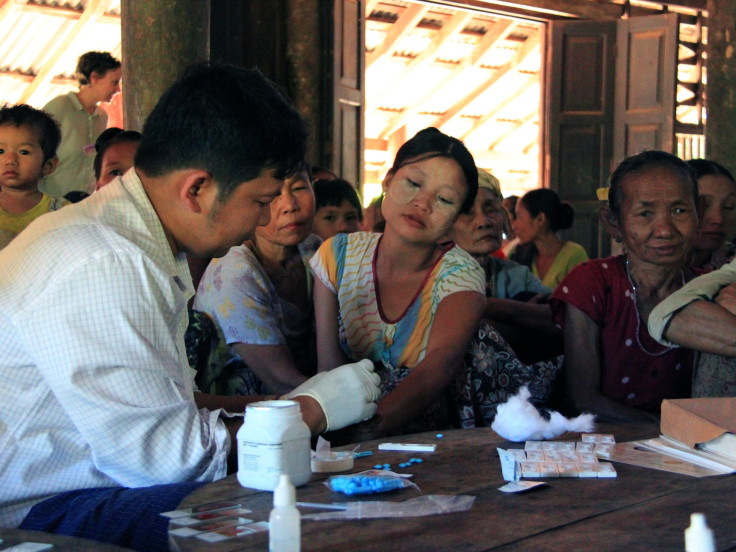Malaria Death Rates Decreased In The Past 15 Years, But Some Regions Still Hurt More Than Others: Report

In the past 15 years, deaths caused by malaria have decreased by 60 percent, according to a new report from the United Nations. In 2000, Malaria killed almost 840,000 people worldwide, while in 2015, the disease is expected to cause about 438,000 deaths, according to the report Thursday from the World Health Organization and the UN’s children’s fund, also known as Unicef.
The U.N. said the reduction in deaths has been the result of improved testing and the distribution of mosquito nets, which has increased in recent years. About a billion nets have been distributed since 2000.
Some 68 percent of children now sleep in the nets to protect them from malaria, an increase from less than 2 percent in 2000. Mosquitos mostly travel at night, making it important for people to sleep under these nets, the report said.
Efforts to decrease malaria deaths in Asia and the Caucasus region of Asia and Europe, which includes Georgia, Iran and Turkey, were very successful. Efforts to curb malaria deaths in sub-Saharan Africa were not as productive as in other countries, the report found.
About 80 percent of the deaths caused by malaria are in the sub-Saharan region. The high number of deaths in sub-Saharan Africa saw health organizations give more attention to this region.
"Global malaria control is one of the great public health success stories of the past 15 years," WHO Director-General Margaret Chan said in a statement. "We can beat this ancient killer," she added.
Researchers also said that eliminating malaria worldwide is possible. New technology has also allowed net developers to create nets that last longer without having to reapply insecticide every couple of years.
Resistance to popular malaria drugs helps parasites survive other treatments http://t.co/sI5BAeWKzE pic.twitter.com/SA1JQ0XWTb
— The Verge (@verge) September 16, 2015
Caused by parasites from mosquitos, malaria patients can experience chills and flu-like symptoms, according to the Centers for Disease Control and Prevention. If left untreated, the disease can lead to severe complications and death.
© Copyright IBTimes 2024. All rights reserved.





















